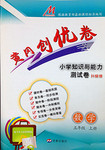题目内容
It's time to be water efficient!
As populations increase across Australia and the rest of the world, demand for water will also increase. If we don’t reduce each individual’s demand for water (both directly and through embodied water) the water situation will become dire.
It is obvious that we cannot increase demands for water much more without detrimental(有害的) effects to the environment, society and the economy.
It’s all too easy to blame someone else for the water situation –“if 70% of water is used for agriculture then that’s what we should target” – but it’s not that easy. We all depend on the food and resources that agriculture provides, and while there are definitely opportunities to increase water efficiency on the farm, the solution will take more than that.
We each share responsibility for the sustainable management of our water resources, which means using less water at home, in the workplace, at school, on holidays, on the farm, … everyone, everywhere, every time.
It's time to become water efficient! This involves reassessing our relationship with water, and learning to use it more sparingly. On the most basic level, it requires a behavioural(行动的) change, and assigning a value to water that truly reflects its worth.
We can also unlock economic benefits of being water efficient. There are many real world examples given in the case studies on this site.
Everybody has a responsibility to save water, if future generations are to enjoy a similar standard of living to the one we enjoy now. In fact, many of the impacts associated with water use are likely to have an effect on our own lives!
www.savewater.com.au has been designed to help you respond to the challenge to become water efficient. It acts as a central repository for relevant information and further advice, so that you can actually achieve significant savings. It also showcases those companies with products that will assist you in your goal.
- 1.
Can you infer where this passage is from?
- A.newspaper
- B.TV programme
- C.Radio broadcast
- D.Internet
- A.
- 2.
What can we do to save water?
- A.find more water resources
- B.use less water everywhere, every time
- C.realize the importance of saving water
- D.unlock economic benefits of being water efficient
- A.
- 3.
What is not the reason to save water?
- A.There are more and more people in the world.
- B.The water resources are limited.
- C.Agriculture needs more water.
- D.The water is very important for us.
- A.
- 4.
What is the main idea of this passage?
- A.Water is very important for the human.
- B.Everybody has a responsibility to save water.
- C.It's time to be water efficient.
- D.Let’s save water for our future generations.
- A.
1.文章后数第三段提到“在这个网站上有许多真实的世界研究案例”。
2.文章中间说到我们每个人都有责任节约用水,无论何时何地,要减少用水。
3.文章说到农业用水量大,没有办法减少,我们的食物要靠农业来提供;但并没有说农业用水在不断增加。
4.文章中两次提到 “It's time to be water efficient”也分析了节水的原因和重要性,又提供了可供参考的有价值的网站。

 黄冈创优卷系列答案
黄冈创优卷系列答案March, April and May are months full of festivals and events all over the world. Here are some wonderful festivals around the world that happen in spring.
SongKran--Thailand
Dates: 13th-15th, April
In Thailand, it’s time to celebrate the coming monsoon season, which will bring the rain many people have been looking forward to. They celebrate it with a festival called Songkran, when people head out to the streets with water guns to spray(喷,洒)everyone who walks past. If you walk on the streets where the festival is celebrated, prepare to get soaked!
Naghol--Vanuatu
Dates: Every Saturday from April to May
Every year, villagers come together to celebrate the harvest of yams, an important part in the peopls’s diet in Vanuatu. The festival is most famous for its “land diving ceremony”. During the ceremony men and boys dive to the ground from high wooden towers with only two thin vines attached(附于)to their ankles(脚踝). The divers’ heads have to lightly touch the ground when they jump---something very dangerous if the vines are not measured(测量)properly.
Cherry Blossom Viewing ---Japan
Dates: The cherry blossom season is different from year to year depending on the weather forecast.
The cherry blossom season has huge importance to the people of Japan, who celebrate the days when the flowers finally blossom. Only a few days later, the petals(花瓣) fall to the ground, like pink snowflakes. This is one of the most beautiful things to see. In Japan, almost everyone has picnics in the parks to view the flowers.
Sinhalese New Year--Sri Lanka
Dates: 13th or 14th, April
Just like in many other countries in South an South East Asia, this is the time when the Sinhalese celebrate the traditional New Year, an ancient celebration which marks the end of the harvest season and is one of two times of the year when the sun is straight above Sri Lanka. There are a lot of delicious foods during the celebration.
1.. What does the underlined word “ soaked” in Paragraph 2 probably mean?
|
A.tired |
B.wet |
C.crazy |
D.interested |
2.The writer thinks that the “land diving ceremony” can be dangerous for the divers because ___________.
|
A.the divers may fall onto the ground if the thin vines break |
|
B.the divers may bump into (撞在…上)the wooden tower on the way down |
|
C.the divers’ ankles may get injured if the vines are tied too tightly |
|
D.the divers may injure(伤害)their heads if the vines aren’t measured properly |
3.We can learn from the passage that__________________.
|
A.the Cherry Blossom Celebration usually lasts a long time in Japan |
|
B.the Cherry Blossom Celebration is the most important festival in Japan |
|
C.the time for the Cherry Blossom Celebration in Japan can be different yearly |
|
D.people usually stay at home for celebration during the cherry blossom season. |
Now then, children, it's time you_____________.
|
A.washed and dressed |
B.are washed and dressed |
|
C.will wash and dress |
D.were washed and dressed |